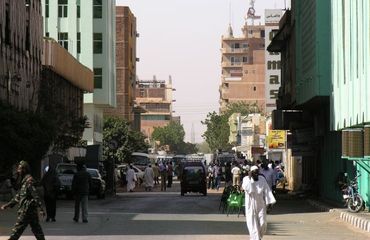São Paulo – The International Monetary Fund (IMF) will help Sudan organize its economy in order to reestablish growth. In a note released this week, the Fund states it has approved the Staff-Monitored Program (SMP), which will help the Sudanese government in economic reforms until the end of the year. This partnership does not entail loans neither guarantees by the IMF.
“Sudan’s economy has been facing major challenges since the July 2011 secession of South Sudan, with low economic growth, high inflation largely driven by the financing of high fiscal deficits, a deterioration in external and fiscal accounts, and a persisting gap between the official and curb market exchange rates”, says the Fund on a note.
In 2011, the population in the South agreed to the separation of Sudan after years of conflict. The South kept most oil reserves, but the new country does not have access to the sea. An agreement between the two governments made at the time determined that the oil would, then, be sent to Sudan and from there exported through the Red Sea. According to the agreement, the revenue from the oil would be split. The resources, however, are not fully harnessed.
The IMF claims that another problem in Sudan is the high and mostly overdue foreign debt. It is this debt that keeps the country from getting external financing sources and loans from IMF. Though IMF claims to have established “good relations” with Sudan for over a decade, the Arab country cannot receive IMF’s resources because it is also in debt with the Fund.
In the note, the IMF says it will work alongside the local authorities and monitor the progress in the implementing of the economic programme through its quantitative targets and structural benchmarks. “Successful implementation of the SMP will signal to the international community the authorities’ commitment to macroeconomic reforms and in due time will help the authorities in the debt relief process,” says the note.
*Translated by Rodrigo Mendonça




